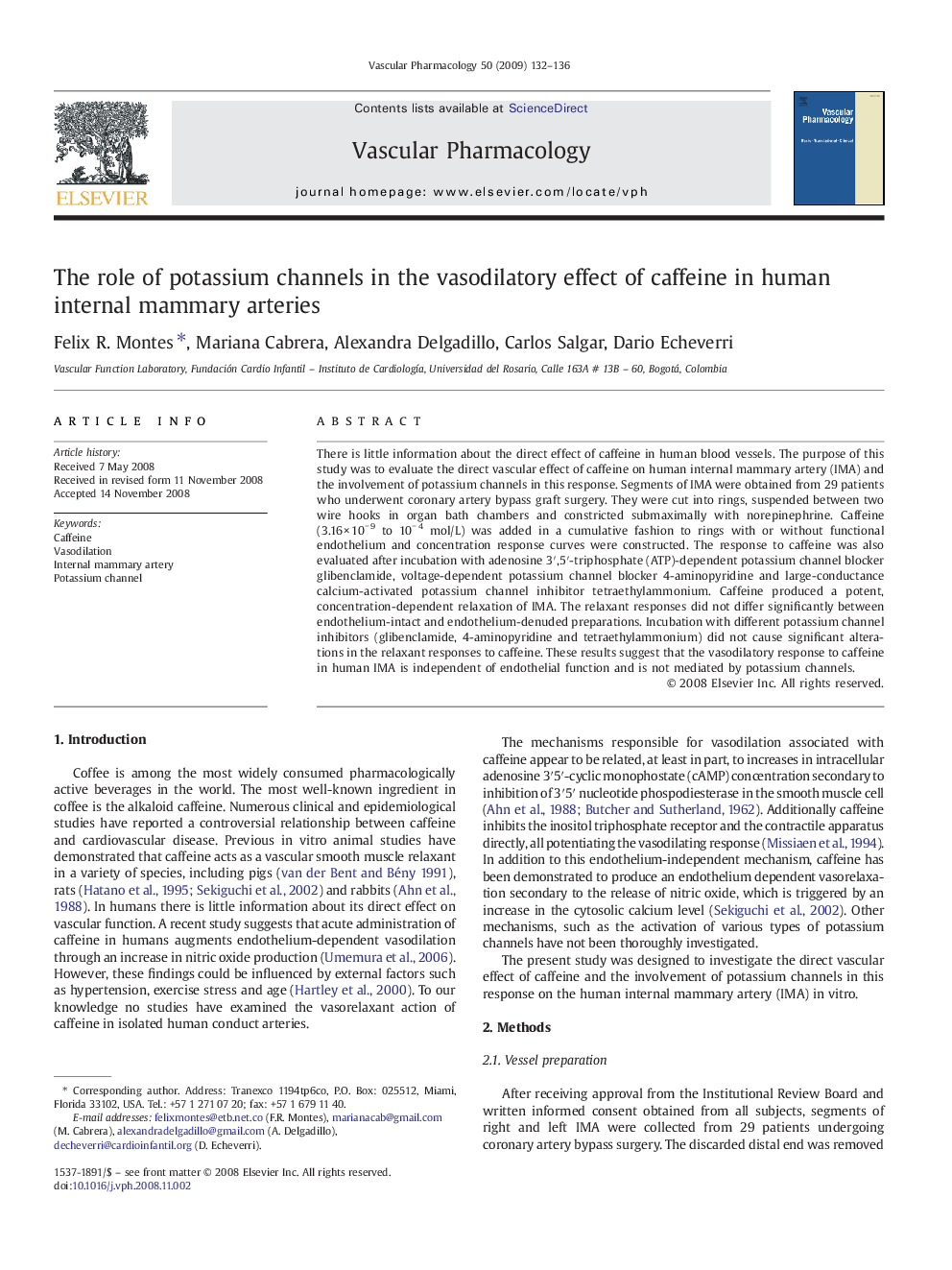| Article ID | Journal | Published Year | Pages | File Type |
|---|---|---|---|---|
| 2574770 | Vascular Pharmacology | 2009 | 5 Pages |
Abstract
There is little information about the direct effect of caffeine in human blood vessels. The purpose of this study was to evaluate the direct vascular effect of caffeine on human internal mammary artery (IMA) and the involvement of potassium channels in this response. Segments of IMA were obtained from 29 patients who underwent coronary artery bypass graft surgery. They were cut into rings, suspended between two wire hooks in organ bath chambers and constricted submaximally with norepinephrine. Caffeine (3.16 Ã 10â 9 to 10â 4 mol/L) was added in a cumulative fashion to rings with or without functional endothelium and concentration response curves were constructed. The response to caffeine was also evaluated after incubation with adenosine 3â²,5â²-triphosphate (ATP)-dependent potassium channel blocker glibenclamide, voltage-dependent potassium channel blocker 4-aminopyridine and large-conductance calcium-activated potassium channel inhibitor tetraethylammonium. Caffeine produced a potent, concentration-dependent relaxation of IMA. The relaxant responses did not differ significantly between endothelium-intact and endothelium-denuded preparations. Incubation with different potassium channel inhibitors (glibenclamide, 4-aminopyridine and tetraethylammonium) did not cause significant alterations in the relaxant responses to caffeine. These results suggest that the vasodilatory response to caffeine in human IMA is independent of endothelial function and is not mediated by potassium channels.
Related Topics
Health Sciences
Medicine and Dentistry
Cardiology and Cardiovascular Medicine
Authors
Felix R. Montes, Mariana Cabrera, Alexandra Delgadillo, Carlos Salgar, Dario Echeverri,
